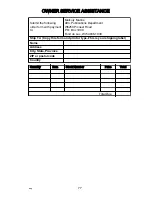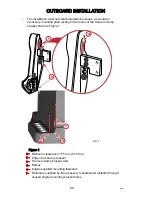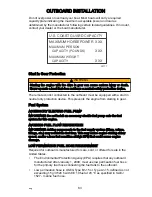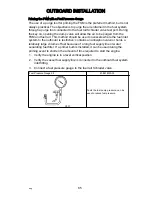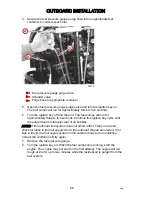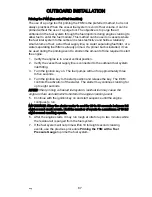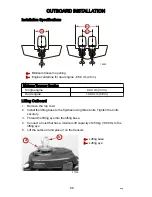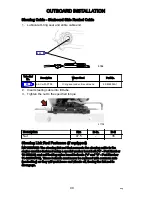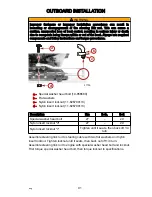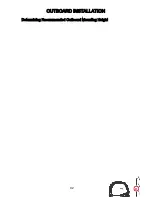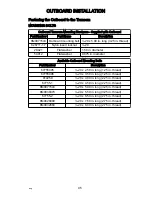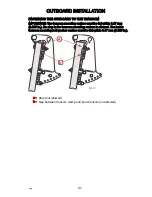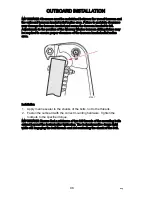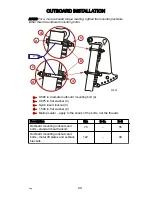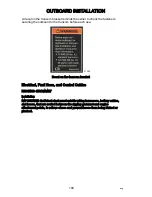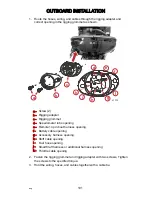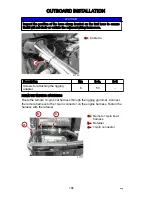
Priming the FSM (Ran out of Fuel Condition)
The use of a purge tool for priming the FSM is the preferred method, but is not
always practical. When the vessel fuel system is void of fuel volume, it can be
primed without the use of a purge tool. The objective is to purge the air
entrained in the fuel system through the fuel injectors during engine cranking to
allow fuel to enter the fuel module. This method can be used on vessels where
the fuel inlet system to the outboard is less restrictive and holds a relatively
small volume of fuel; a short fuel supply line, no water separating fuel filter, or a
water separating fuel filter is already primed. If a primer bulb is installed, it can
be used during the priming event to shorten the amount of time required to start
the engine.
1. Verify the engine is in a level vertical position.
2. Verify the vessel fuel supply line is connected to the outboard fuel system
inlet fitting.
3. Turn the ignition key on. The fuel pumps will run for approximately three
to five seconds.
4. Turn the ignition key to the start position and release the key. The ECM
controls the activation of the starter. The starter may continue cranking for
up to eight seconds.
NOTE: When priming a drained fuel system, residual fuel may cause the
engine to flare and stall which shortens the engine cranking event.
5. Continue with the ignition key on and start sequence until the engine
continues to run.
IMPORTANT: Allow the starter motor to cool for 20 to 30 seconds between full
eight second crank events. Limit the number of events to a maximum of 10 full
eight second cranking events.
6. After the engine starts, it may run rough at idle for up to two minutes while
the residual air is purged from the fuel system.
7. If the fuel system will not prime within 10 full eight second cranking
events, use the previous procedure
Priming the FSM with a Fuel
Pressure Gauge
to prime the fuel system.
OUTBOARD INSTALLATION
eng
87





